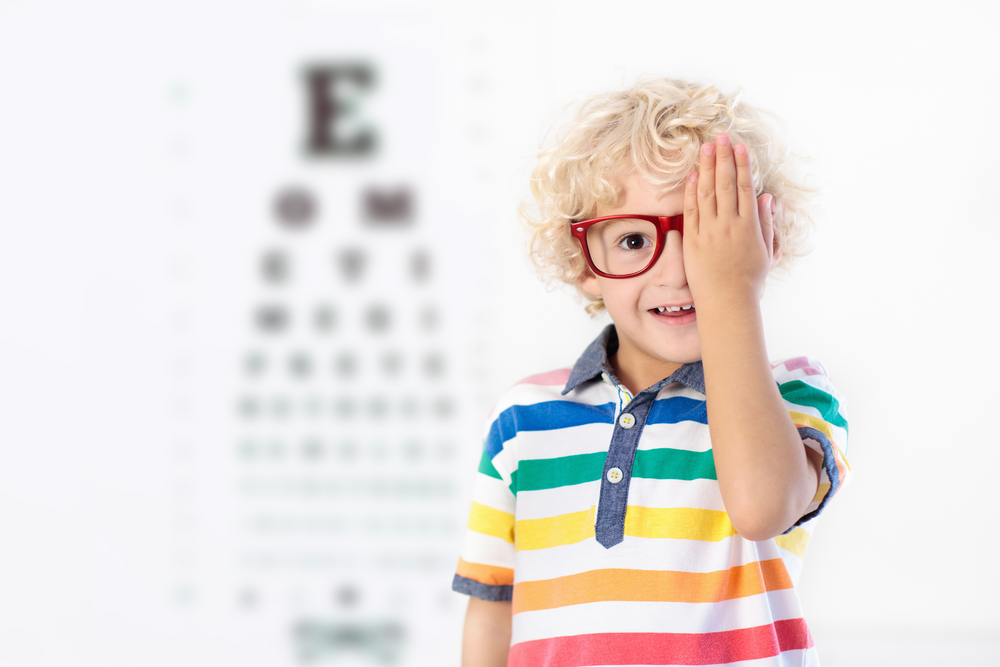
Pediatric eye exams are detailed visual assessments designed specifically for children. These exams are more comprehensive than the simple vision screenings conducted at schools. A pediatric eye exam involves various tests and procedures to evaluate the health of your child's eyes and the quality of their vision.
During a pediatric eye exam, the optometrist checks for several things. They examine the health of the child's eyes, check for common vision problems like nearsightedness, farsightedness, and astigmatism, and assess how well the child's eyes work together. The doctor may also test the child's color vision, depth perception, and eye movement abilities.
Additionally pediatric eye exams can uncover conditions that are not easily noticeable but can have serious implications if left untreated. These include lazy eye (amblyopia), crossed eyes (strabismus), and other conditions that can lead to vision loss. Now that we've understood what a pediatric eye exam is, let's move on to the importance of these exams.
Importance of Regular Pediatric Eye Exams
Regular pediatric eye exams are crucial for many reasons. First, they help detect vision problems early, which is important because children often don't complain about vision issues. They may think everyone sees the world the way they do. Early detection allows for timely treatment, which can prevent the problem from worsening and affecting the child's daily life and learning abilities.
Second, some vision problems, if not detected and treated early, can lead to permanent vision loss. Regular eye exams can prevent this by identifying such issues at an early stage. Regular eye exams also ensure that your child's eye health is continuously monitored, enabling the optometrist to track changes and detect any abnormalities quickly.
Lastly, good vision is essential for a child's physical development, educational progress, and overall well-being. Regular eye exams ensure your child's eyes are healthy and their vision is clear, helping them perform better in school and other activities. Now, the question arises - what is the right frequency for pediatric eye exams?
Determining the Right Frequency for Pediatric Eye Exams
The frequency of pediatric eye exams can vary based on several factors. However, the American Optometric Association recommends that infants should have their first comprehensive eye exam at 6 months of age. After that, they should have another exam at age 3, and then just before they start school, around age 5 or 6.
For school-aged children who don't require correction, an eye exam every two years is usually sufficient. If they need glasses or contact lenses, they should have their eyes checked annually or as recommended by their optometrist. These are general guidelines, but the frequency can change based on various factors.
Factors Affecting the Frequency of Kids' Eye Exams
Several factors can affect the frequency of kids' eye exams. If a child has a high risk of vision problems due to family history, premature birth, developmental delays, or other health issues, more frequent eye exams may be recommended. Similarly, kids with existing eye conditions or those who wear glasses or contacts may need to get their eyes checked more often.
Lifestyle factors can also influence the frequency of eye exams. For instance, if a child spends a lot of time on screens, their eyes may be at risk for digital eye strain, and thus, they may require more frequent check-ups. It's always best to consult with your child's optometrist to determine the most appropriate schedule for eye exams. Now, let's look at some signs that your child may need an eye exam.
Signs Your Child May Need an Eye Exam
Sometimes, your child may show signs that they're experiencing vision problems. These can include squinting, tilting the head or covering one eye to see better, frequent headaches, difficulty concentrating, sitting too close to the TV, or holding books too close while reading. If you notice any of these signs, it's a good idea to schedule an eye exam for your child.
Remember that not all vision problems show obvious symptoms. This is why regular pediatric eye exams are so important. They can detect subtle changes in your child's vision that may not be noticeable yet. Regular eye exams can ensure your child's eye health and vision are always at their best.
Conclusion
Pediatric eye exams are vital for ensuring your child's eye health and overall well-being. Regular eye exams can detect vision problems early, prevent permanent vision loss, and help your child excel in their academic and personal life.
If you would like to get your child’s eyes examined, contact Shalimar Eye Care at our Shalimar, Florida office. Call (850) 972-1600 to discuss any questions with our team of experts or to schedule an appointment today.




